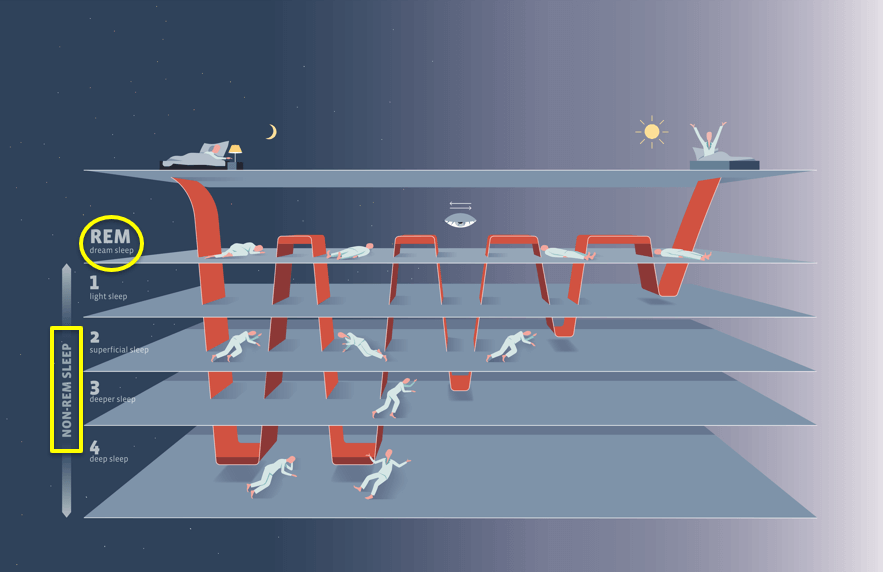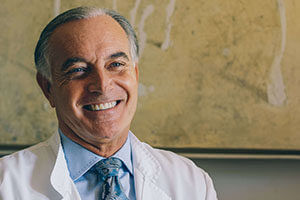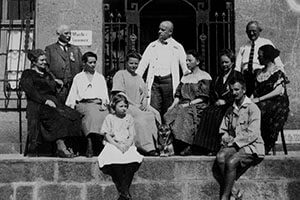FASTING AND SLEEP
What we know about it and tips for a good night’s sleep
When you fast, you are investing in your health. Part of living a healthy life is getting enough sleep. In this article we explain how the two are connected, report on how people perceive changes in their sleep when they fast, and give you eight tips for a good night’s sleep.
Why sleep is so important for our health
At Buchinger Wilhelmi, everything we do is geared to empowering people to live a healthy, fulfilling life. But you also have the potential and sufficient resources to do this yourself. Besides nutrition, fasting, exercising and an emotional balance, an important factor is sleep. For a long time, sleep was seen as an absence of activity, but it is in fact a separate “programme”, and essential for our physical and emotional regeneration. After all, as humans we can live much longer without food than we can without sleep. Sleep deprivation is sheer torture for the body and mind.
We are sleeping less and less: Over the last 70 years, the average time we spend sleeping has dropped from 7.9 hours per night (survey in 1942) to just 6.3 hours. That is a decline of roughly 20 %. At the same time, we have to process more and more impressions. Life has become faster and more hectic and we are constantly inundated with outside influences through smartphones, social media, etc. That’s why we really need to sleep more, not less, to enable us to recover and digest all this.
Sleep and fasting: What we know so far
Although no major clinical studies have been carried out so far to explore the function of sleep during fasting, we are already seeing indications that people who fast do not sleep as long in their subjective perception, and yet feel deeply relaxed.
What are our natural sleep rhythms?
As soon as it gets dark, our bodies start to produce melatonin and our circadian rhythm switches to sleeping and fasting. Our normal sleep function comprises cycles of around 90 minutes. In the first half of the night, our bodies enter deep sleep (NREM), giving the body’s functions and muscles a chance to recuperate. This first phase lasts from around 10 p.m. to 2 a.m. It is followed in the second half of the night from around 2 a.m. until we get up by the REM phase, which is when you dream.

What changes do people who fast perceive?
We carried out a study in our clinic in which we asked guests about their sleep. Around 20 % answered that when they fast, they notice that their sleep patterns are different. Especially in the first days of fasting, we hear that guests have the feeling they sleep less than usual because they often wake up at night, for example. When asked how refreshed they feel the next day, however, they typically answer, “It seemed like I slept less, but I was surprisingly refreshed in the morning.” Some even said they jumped out of bed like a small child. On the first day of resuming food intake after fasting, some patients reported that their sleep patterns returned to normal and that they felt less refreshed in the morning.
We recently carried out a further study in which subjects were given a wearable (body-worn computer system for collecting health and environmental data), which will provide us with more precise results after the data have been evaluated.
It is therefore entirely reasonable to believe the words of our founder, Otto Buchinger, when he said, “Even a sleepless night can be a blessing!” He even went so far as to recommend that patients learn a poem or a psalm off by heart while lying awake in bed. This would stop their imagination from running wild and allow them to slowly fall back to sleep.
Why does fasting affect our sleep?
The reasons why fasting can affect our sleep have not yet been thoroughly explored. It is plausible that the switch to burning fat causes the body to change to a state of ketosis, which can result in a certain agitation. Another possibility is that the change in the metabolism is due to the short stressful phase at the beginning of a fast.
An important factor for our sleep is always our emotional state of mind. When we fast, the usual compensation mechanisms in your everyday life are lacking. As a result, suppressed emotions can come to light and maybe cause a restless night. The advantage is that you then become aware of these emotions and can process them.
A stay at a Buchinger Wilhelmi clinic is also time away from your everyday routine, with a different rhythm and more time to yourself. When you fast, you have a more structured daily routine. That is one of the most important prerequisites for a good night’s sleep.
Video: Dr. Françoise Wilhelmi de Toledo about fasting & sleep
Tips for getting a good night’s sleep – when fasting or in your daily life
We have already explained why a good night’s sleep is so important. But what can you do if you can’t sleep at night? There are some rules that we would like to recommend to help you sleep better*:
*Careful: These tips are designed for healthy people with minor sleeping issues. If you suspect you have a serious sleep disorder that may require medication, please consult a doctor. If you are staying in our clinic, you have the option of a cardiorespiratory polygraphy, which can help to diagnose possible sleep disorders. We also work with a sleep laboratory.









